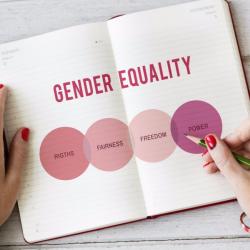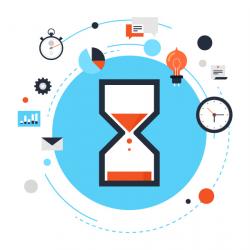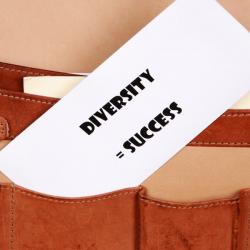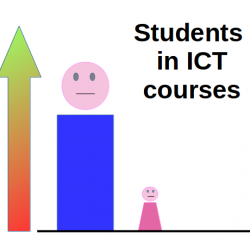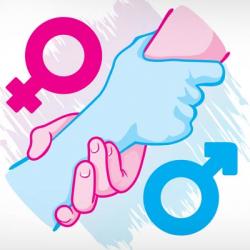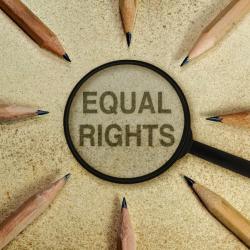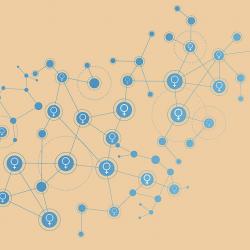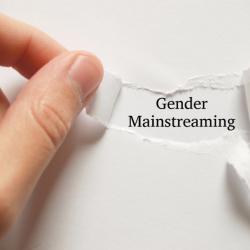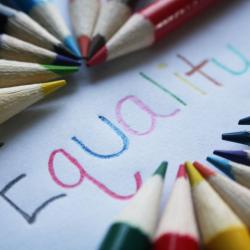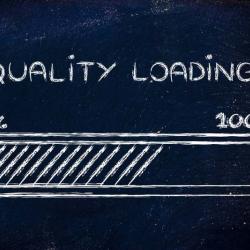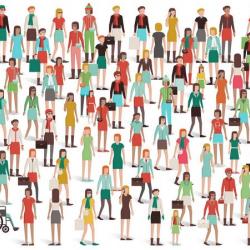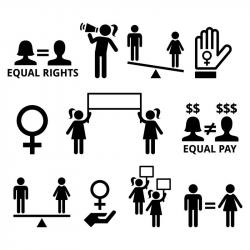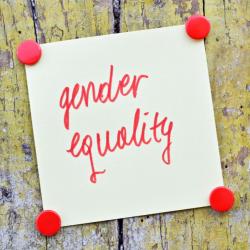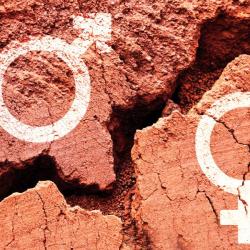A very important measure to develop inside higher education and research institutions links to reflexivity. Gender mainstreaming policies have stressed the importance very much of generating institutional and structural change within research and higher education organizations. However, increasingly evidence is being gained concerning the lack of effectivity of some changes being promoted inside organizational settings.
Challenges
A Challenge is a specific issue, problem, or obstacle related to gender equality faced by a research institution. Below you find a list of challenges submitted by the project partner institutions. You can filter them by their category, which has been provided by the authors.
Challenge category: Work-life balance issues
Gender equality plans would beneficiate from a diagnosis on time uses and representations, as a great part of challenges involving gender inequality at academy and higher education settings links to time scarcity. Academic publics – researchers, teachers, and non-academic staff, as well as students are experiencing contexts of high competition.
In our society, many Academic and Non- Academic staff members - especially women - are usually engaged in giving care not only to their children, but also (or only) to their ageing parents or relatives. This situation often creates obstacles to achieving a good work-life balance.
Parental duties were considered as the main barrier for career development of female employees. This was described as problematic for academic staff, where the competition between researchers can be directly measured (e.g. in term of publications within a certain period of time).
Nowadays there is the problem of the importance of achieving the work/life balance. We need to be more pressure to be successful in a career. In the same time, we try to be a good parent and have a fulfilling personal life in which we rear children, enjoy our hobbies, volunteer in the community. How to achieve a balance between career and personal life.
Since academic careers in Germany are associated with high workload and the culture of long working hours on the one hand and insecure working conditions (temporary contracts) on the other hand, men and women who have children or would like to have children tend to be disadvantaged.
During the internal gender audit workshops, both the groups of academic and non academic staff pointed out the difficulty of balancing work and private life, especially for mothers of young children.
Students who become parents have a need to combine learning with childcare. Young professors and non-academic also face a similar problem. They must choose between career and childcare. Especially it concerns women. If a woman does not receive an education and an opportunity for career growth today she will face a risk to become socially unprotected in future How to solve this problem at the university level?
The discussions inside the Institutions and the University regarding the terms Gender, Equality, Work-Life Balance are a sensitive topic, that is ignored by many. The challenge is to raise awareness for the rights, opportunities and chances that all genders have, and also, what can be achieved through designing and implementing GEPs at the University.
Ideas and Suggestions about how to encourage the University's community, as well as how to achieve a better reach are welcome.
Challenge category: Gender imbalance among students
Gender equality at universities has very much to do with students. How students live and cope with evaluation demands in IS is a main topic to address. Invisible to most of universities policy makers and teachers, gender inequality is at the heart of many difficulties women face when needing to respond to academic demands which are increasingly dependent on the intensive use of technologies (blackboards platafforms, e-mail, e-learning).
Females are usually minority in IS/ICT-fields and thus they may fell lack of togetherness. This may be a bigger problem in the universities where there is no mandatory lecture participation. Then it is easier to stay away form lectures and this actually make situation worse as then there are less females to make contact.
The issue is to attract girls to computer science, and boys to economic science. How to achieve gender balance in the formation of student groups in these fields?
There is a gender imbalance in the ICT field. It manifests at different levels. For example, the most of the students are guys among students in the computer science and information technology specialty. The same gender imbalance is revealed among postgraduates. Also, the most of IT professionals are male in IT companies. How to overcome this gender imbalance?
While graduate enrollments generally evidence a substantial balance or even a female predominance, girls are definitively reluctant to pursue ICT academic studies: in this courses, girls typically account for 10% to 20% of students of every level (bachelor, master, doctoral degree).
The issue of the lack of women at higher academic levels (professors, doctoral and postdoctoral researchers) in Information Systems (IS) research institutions starts with their low rates among those who select IS as a study programme for Bachelor studies. This seems to be the root problem for the overall under-representation of women in the IS field. There are several reasons that might discourage young women to enter the IS field.
Challenge category: Other gender equality challenges
Organization management is an important issue and employees are usually involved with it. That creates a better connection between organization and an employee and makes employees feel more responsible for an organization. The same method is used in the IT field too. However, IT organizations, where the majority of employees are men, lack of a crucial women's perspective in decision making process.
A modern life requires to have a clear vision of everything: personal life, career, future and so on. Especially, it is important to have a clear vision when it comes to career. It is noticed, that a majority of women working in technology field have no clear vision of what they want to do with their career while their male co-workers have a clear career plan.
There is a very low percentage of females applying for management and professorship positions.
Gender Equality actions may be seen as a feministic approach as most of women get involved in this kind of action. Women fight for equal rights at work and at home. They try to prove that women are equal to men but these actions are fruitless without involvement of men. However, most of the times, men are left besides the actions, they are not invited to take a part and feel responsible for the change.
We know that any activity requires resources, issue of gender equality at the University is not an exception. But the University as a budget institution has no funds to implement gender policies at a sufficient level. What do you suggest to solve this issue?
It seems that it is politically correct in gender equality discourse to focus only on challenges that females faces and bypass the male perspective. This does not mean that we should not look the problem that females faces but we should drive towards real equality instead of the juxtaposition of males and females (not forgetting the other gender).
The practice shows that mentoring programs a
The university lacks resources (monetary and effort) to further foster gender equality and conduct further positive affirmative action. The gender commission has no funds to sponsor projects. Substantial resources do not exist (e.g. a full-time gender office or position) and most attempts for gender mainstreaming are being done by individuals that see the need and therefore pursue actions in their free time.
Gender disaggregated data: The collection, analysis and dissemination of objective, reliable and comparable information and data on equality between women and men is an international standard at many universities (gender reporting). This data is needed for transparency and to better understand where gender equality has already been reached and where further actions are needed.
The internal gender audit at the Department of Information Systems (IS) has revealed that international students tend to feel excluded by local students from group work. In case groups can be formed by students, German students tend to form groups with other German students.
Discussions conducted during the internal gender audit pointed out that some changes take time to show their effects (i.e. gender composition at apical positions changes very slowly). The current situation is the effect of choices made long time ago and seeing the effect of the choices we make today will take some years.
Quantitative analisys conducted during the project gender audit revealed that is quite hard to get data disaggregated by gender and compare them with data provided by different offices. Each office stores and manages data with different information systems and with different procedures, hence it is not easy to gather the data and make deeper analysis and comparisons.
The processes required for the improvement of gender equality and diversity need to be sustainable to make a change. Usually it takes years before the changes in numbers can be observed. According to the work done by Athena Swan, the results of successful interventions promoting gender equality become visible only after at least five years since the start of their implementation.
In many cases, dedicated committees on Gender Equality or Equal Opportunities exist at research institutions and universities. However, sometimes these committees do not have enough available resources in terms of time, human and financial availability.
The audit revealed that the topic of gender would benefit from further strategic relevance and attention by senior management.
The reason why so less girls study Information Technologies and other Technological Sciences might lay under the lack of knowledge. Various initiatives for girls to study the Information Technology were promoted. However, there is still a lack of knowledge what girls actually can work in that field because women are not represented as IT specialist.
The issue of low identification of gender equality problems is the lack of long-term actions toward gender equality at KTU. The lack of long-term actions creates a conducive environment for spreading negative attitudes against women as colleagues in the field of Information Technologies or other technical sciences. Program of mentoring could be as a leading action for gender balance at information technologies and research departments.
There has been good experience of getting support from co-workers if there has been some issue that feels disturbing in one's own unit of faculty. The open and supporting relation between co-workers helps to bring up the issues that can affect equality. Hence, there is a need for finding way to support this kind of activity without forcing it to happen.
Challenge category: Gender-insensitive language and communication
A gender neutral communication is a basic requirement for a system where there are no discriminations and inequalities among genders. The use of gender neutral expressions and visual contents may greatly help in fighting the cultural gender stereotypes existing in our society. However, the institutional communication of the university does not consistently use gender sensitive forms of textual and visual communication.
Language plays a key role in how we interpret the society and our place in the socium. Word choices often reflect unconscious assumptions about values, gender roles and the abilities of women and men. Thus, gender insensitive language is the cornerstone in development gender culture and tolerance. Which ways do you see to use the gender-sensitive language in the University?
There are only male professors in our unit and thus our unit is usually giving presentations from the perspective of males as usually professors gives those presentations. However, Information Systems Science (ISS) has female staff that has experience and could be working as a voice of females when giving presentations to students the public audiences.
The feedback session at the University has revealed that much effort has been made previously to enhance gender equality and HR and the gender commission are working proactively in this direction. However, it seems that many achievements are not sufficiently communicated inside the organisation and thus the perception arises that the university is lacking state-of-the-act actions and means.
Gender-sensitive language aims at acknowledging “gender equality in written and spoken language”. (http://eige.europa.eu/rdc/thesaurus/terms/1215). At the Department of Information Systems gender-sensitive language is not consistently used by lecturers and in institutional communication.
The public presentations about ICT/IS-units are more often held by males - as they are usually majority in the field - and thus this can make the voice of females to be missing and thus attracting more males than females.
Challenge category: Gender stereotypes
It was noticed that social media is drawing a wrong picture of girls who are interested in ICT. For instance, in movies such girls are often seen as anti-social, having poor communication skills, unable to have good personal relationships, etc. It is necessary to stress out that this picture does not mirror the reality. There are many successful women studying and working in ICT: they are charismatic, confident, and socially active. Mass media is just stereotyping.
Lithuanian women, unlike their male peers, often have a more difficult way to go when building a career in ICT world. The reasons for such situation are various: starting from self-criticism and ending with social environment.
The internal gender audit at the Department of Information Systems (IS) has revealed that some students and staff members believe that due to biological and psychological differences, women tend to be less interested and less capable than men in certain tasks (e.g., programming). This prejudice provoke the development of impostor syndrome among female IS students, leading to their underestimation of own IS-related competences.
The stereotypes about the role, appearance, and behaviour of women and men still exist in the German society and are also present at the University on Muenster. The conducted internal gender audit has revealed that some lecturers call female students “Fräulein” (old-fashioned for “miss” in German) instead of their names, because they are the only female students. Although it is not meant in a negative way, it makes the addressed female students feeling uncomfortable.
Gender stereotypes are widespread in the society about the characteristics and behavior of representatives of different gender, primarily men and women. Do you know such stereotypes and ways to overcome it?
Challenge category: Lack of awareness about gender equality
Gender culture and tolerance are among the key factors that shape society as a whole and organizational culture in particular. In our society, people often do not see gender issues and stereotypes. One reason is their lack of knowledge about gender issues. This is an obstacle for the development of the gender culture and tolerance. How to overcome these obstacles?
Apart from the HR office and individuals already actively pursuing gender equality, the awareness of current gender imbalances or issues as well as the need for gender mainstreaming and affirmative actions is generally low. This was reported to be present in academic and non-academic staff, all career levels, and in men and women alike. The lack of awareness also stretches to opportunities that already exist, but which are not well-advertised across the university (e.g.
Quite often people do not see the problems regarding to gender equality and therefore they don’t realize gender equality initiatives
All the workshops carried out during the internal gender audit revealed a low level of awareness and understanding about gender equality dimensions among the main components of the university (student population, academic and non academic staff).
Although the Department of Information Systems faces under-representation of women at all levels (from Bachelor students and up to professors), the topic of gender equality until now has not been extensively discussed or recognised as important and even a certain hostility towards the topic could be observed. It is a common understanding to limit gender inequality to direct discrimination.
It is often perceived by both male and female staff members, as well as students, that positive discrimination actions, such as gender parity quotas in committees and decision-making bodies, as well as in target values for hiring staff, are doing more harm than providing value.
Challenge category: Gender imbalance among academic staff
According to Wikipedia, emotional labour means " the process of managing feelings and expressions to fulfill the emotional requirements of a job.[1][2] More specifically, workers are expected to regulate their emotions during interactions with customers, co-workers and superiors." For example airline stewardess has to be nice to customers despite they might be very demanding or even intoxicated.
- Females are clearly under-represented in higher academic ranks and other management positions across the university, while in general the percentage of females at the university is equal. This is the classic challenge of vertical gender segregation.
The gender assessment internal to the university revealed that female researchers more frequently apply for individual grants, like Marie Curie Individual Fellowships or ERC programs, but few of them apply as Principal Investigators of collaborative projects with a consortium or a research group to manage and coordinate.
The analysis of gender disaggregated data about the academic members show that the female presence significantly decreases passing from the category of junior/senior researchers to the highest level positions of associate and full professors, indicating the existence of the so called 'glass ceiling' or vertical gender segregation.
Have you ever faced the problem of the so-called "glass ceiling" in organizations? A "glass ceiling" is a metaphor used to represent an invisible upper limit in organizations, above which it is difficult or impossible for women to rise in the ranks. This metaphor is used for the hard-to-see informal barriers that keep women from career grouth or pay raises.
The issue of vertical gender segregation or 'glass ceiling', i.e. lower shares of women at each higher position level, is relevant for the majority of fields in academia and in practice, including the Information Systems (IS) field. The lack of women at higher IS academic ranks results in the lack of visible role models for young women and reinforces the image of IS as a male-dominated domain. An indirect societal message is still common that women are not demanded at managerial positions.
Challenge category: Gender imbalance among non-academic staff
A gender imbalance can be observed among non-academic staff members at the Department of Information Systems: All members of the system administration team are men, while all team assistants and the librarian are women.







